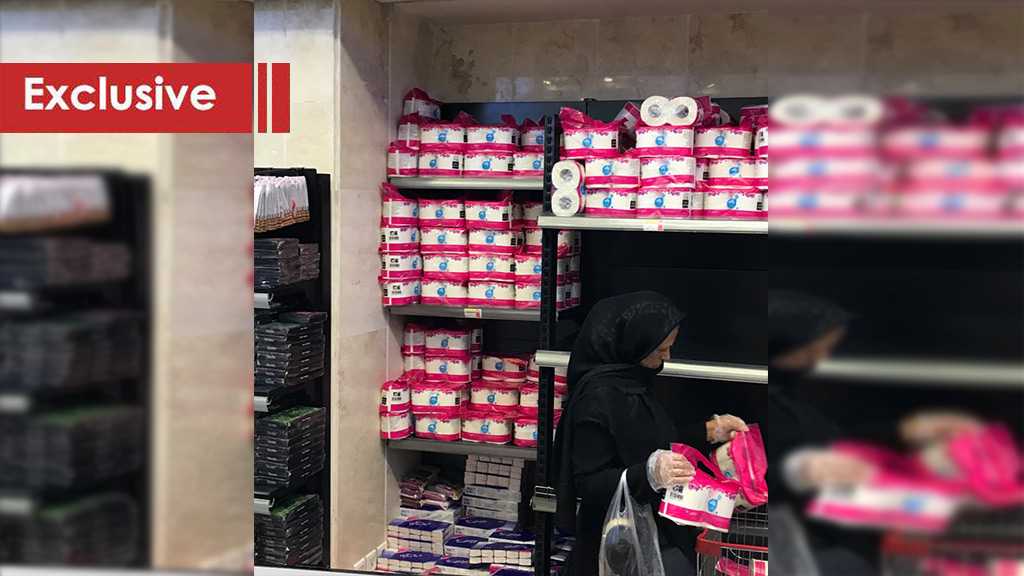
Many foreigners live in Iran and happen to remain there during the COVID-19 pandemic rather than go back home; an experience that tremendous numbers of people go through across the globe. However, reports and news have been circulating throughout some social media outlets on how the Iranian experience differs somehow from other countries, especially Western countries.
Living in Tehran, Charlotte told al-Ahed news about her experience as she decided not to go back to her home country, the US, fearing she would catch the virus on the long-flight back home and then transfer it to her own family members.
Telling al-Ahed about measures taken by the Iranian government, Charlotte said “I have personally seen the following government measures: closing of parks; asking stores and offices to close/reduce hours; reduction of street sellers; asking population to stay at home; closing of schools and universities; encouraging people to work remotely if possible; guilds compelling their members not to open companies and stores; closing hospitals to visitors and having disinfection entry points”.
This was followed by an instant cooperation of the people, who according to Charlotte, mostly remain indoors unless exercising, shopping or seeking medical care.
A small number are meeting their friends outside. People who live in my street have not gathered in local parks since they were closed and traffic and store opening is generally limited. I have seen some people working who cannot afford to stop, including some stores and street sellers. Some people celebrating events near my house shouted and chanted from their balconies instead of gathering in group.
Although there was some panic buying early on, and some empty grocery shelves in smaller stores, grocery stores are by-and-large restocking Iranian goods continuously, Charlotte said.
The high demand for non-perishable food items, toilet paper and hand sanitizer has made shoppers go crazy across many developed nations who are buying and stockpiling products. In Iran, there is no hoarding of goods and people can still find almost everything they need even medicine.
“Given I require daily medication for an unrelated condition, and am not able to go to my country to purchase it in bulk as I usually would, I have bought medication recently from local pharmacies,” Charlotte added.
Things were different in Iran in the 34 year old lady, despite the fact that the country, along with Italy, is a major coronavirus hotspot outside mainland China where the virus first emerged late last year.
The situation was so normal that it apparently even surprised Rob Macaire, the British Ambassador to Iran. On March 14, he tweeted a photo of availability of toilet papers inside one of the shops in Tehran saying “Shopping today in Tehran. In case you were worried…”
Noting on the difference between Iran and other countries, Charlotte told al-Ahed news “I think there are some differences between the response here and in my own country. One difference is government stimulus packages and assistance to people who have become unemployed”.
Another difference is the crises that the country has faced before. For people in my country living in cities, this may be the first serious crisis in their lifetime. Iranians have faced many threats, those over the age of about 35-40 remember the war, and there have been several natural disasters. Therefore, some Iranians have not panicked as much.
Charlotte noted that one of her friends said he had to travel to multiple pharmacies across the city to find a mask.
“However, I have not personally had this experience and pharmacies near my house in Tehran seem to be fully-stocked on Saturdays even if they run out of some things during the week. I use disposable gloves, soap and hand sanitizer/alcohol spray daily and I have not had a problem finding them. I have seen some cleared grocery shelves but given the number of shops nearby I wouldn’t say this has been a “shortage”. Only imported foreign goods [e.g. sauces] seem to be unavailable,” Charlotte explained.
People’s refusal in Iran to stockpile supplies especially much-consumed items is because it is part of their culture and beliefs; “for the sake of other people who need them too.”
Awareness campaigns also seem to help with fighting the virus. According to the Tehran-resident, “There are billboards next to highways and streets asking people to stay at home and advising on what to do about symptoms. There are text messages from the Ministry of Health in relation to how to access the corona advice website, staying at home, hygiene advice, domestic violence helpline etc. There is information on buses and at bus stops. Instead of seeing the name of my service provider, e.g. “Irancell 3G” on my mobile phone, I see the message “Let’s stay at Home-Irancell”.”
Touching on the fact that she did not travel back home, Charlotte said “It is difficult to be away from family during a crisis, especially if anyone should get sick. However, I am glad that I have not personally experienced shortages of food or goods as are being experienced in my own country. I think the risks of reducing economic activity are much greater for low-income Iranians and in this sense many are paying a much higher price than people who are staying at home in my own country. In this sense their attitude is worthy of praise.”
Charlotte said that long-term sanctions as well recent sanctions and oil prices are maybe reasons for Iranian people to worry. She concluded “However, Iran relies to a significant extent on voluntary cooperation rather than penalties. Iran’s self-sufficiency in food and goods is an advantage during this period, and many other countries have not been able to guarantee food and goods for their populations. I am not personally aware of any shortage of ambulance transportation and it seems people who have severe symptoms are receiving hospital care.”
The views expressed in this article are the sole responsibility of the author and do not necessarily reflect those of the Blog!

No comments:
Post a Comment